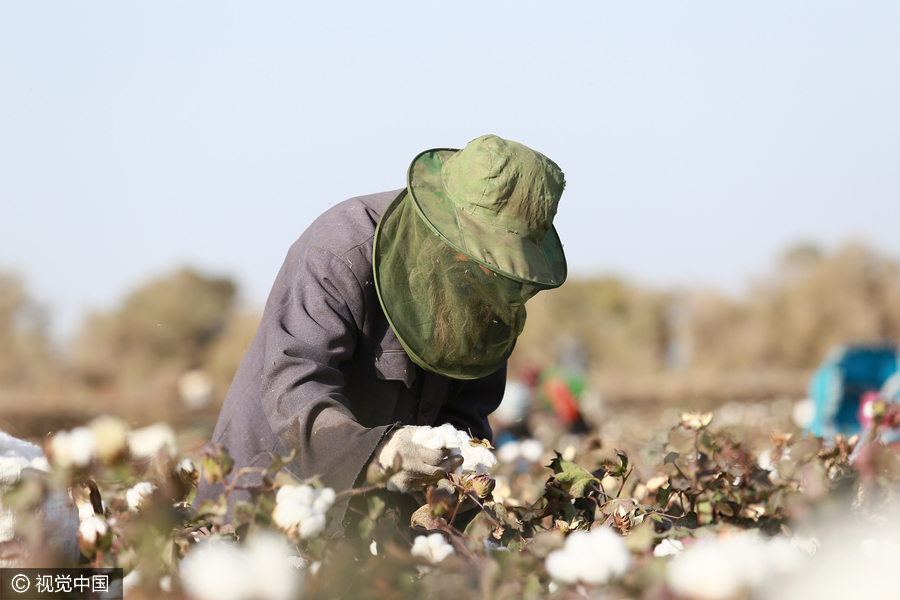400,000 migrant workers flock to Xinjiang to harvest cotton
Updated: 2016-10-28 06:13
(chinadaily.com.cn)
Every year during the 80 days between mid-September and the start of November, about 400,000 migrant workers leave their hometowns in the rural areas of the provinces of Henan, Sichuan, Gansu and Heilong for the northwestern Xinjiang Uygur autonomous region to help the locals harvest cotton.
Each cotton flower is estimated to weigh five grams on average and each cotton harvester needs to bend 10,000 to 20,000 times if they want to harvest 100 kilograms to 200 kilograms daily with both hands working at the same time.
Xinjiang is a major cotton production base in China. With an output of over 3.5 million tons, Xinjiang contributed 62.5 percent of the nation's total output of cotton of over 5.6 million tons in 2015, much higher than the national provincial contribution rate of 24.6 percent, according to the National Bureau of Statistics.
With mechanization underway, special machines are expected to replace people to harvest cotton in Xinjiang in five to 15 years. However, there are both pros and cons to mechanization.
Hiring people to pick cotton often means a greater cost but cleaner and better cotton. It is not easy for cotton farmers to find the right people to help with the laborious work. But using harvest machines requires different cotton seeds and different ways to grow and process the cotton.
